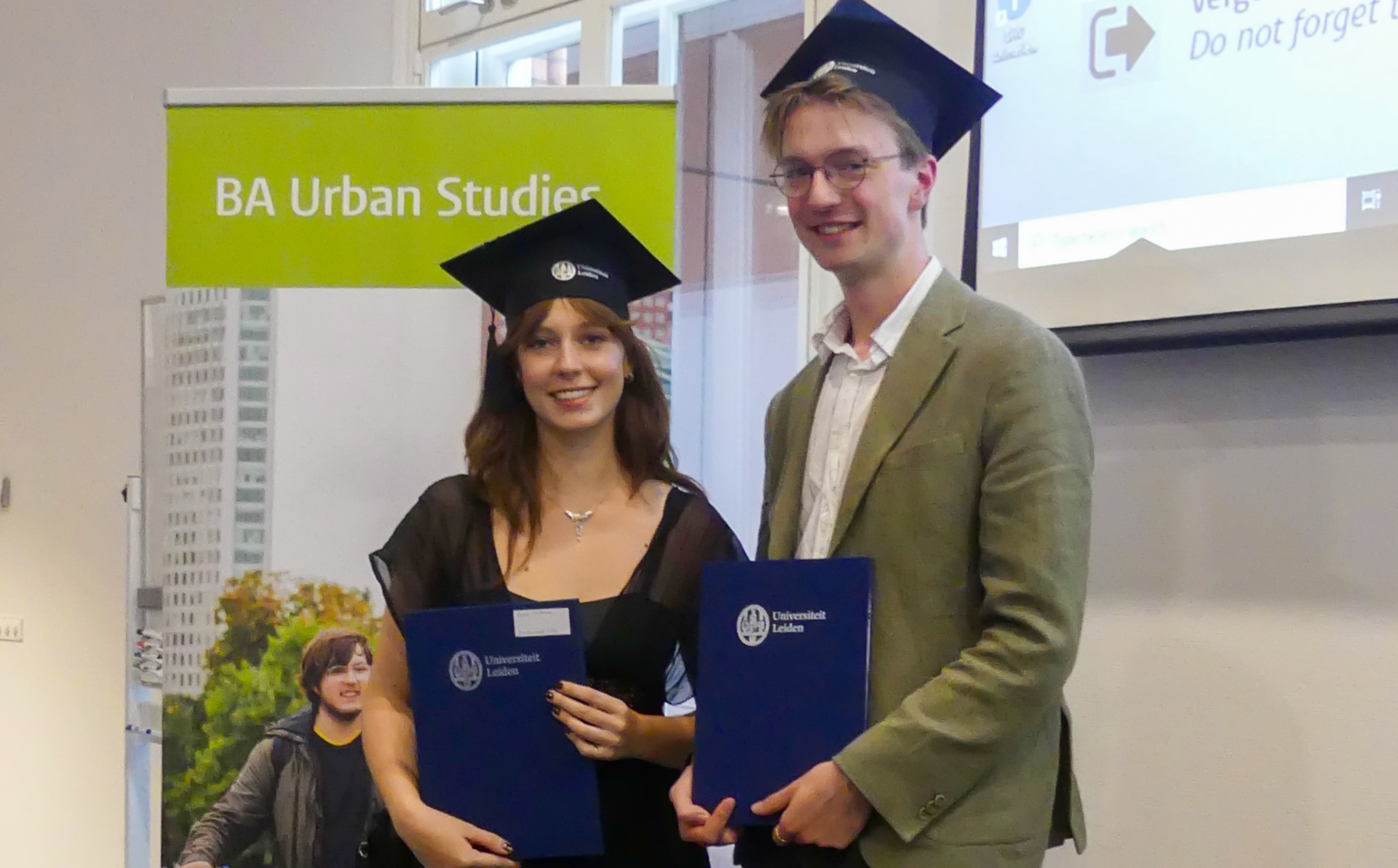
Urban Studies students receive diploma: ‘I want to make cities better places’
image: Regine Mulders
Lecture hall A0.06 in the Schouwburgstraat in The Hague was packed with parents, friends and other loved ones on Friday, 27 September. No fewer than 61 graduates received their Urban Studies diploma there, the highest number in the four years since the programme started.
‘Completing a thesis is no small thing at all’, programme chairman Alistair Kefford told his audience. ‘You've all become urban experts, armed with an enormous wealth of knowledge about your subject, which you could not have imagined three years ago.’
‘You represent a world of knowledge, hard work, and dedication,’ Professor Manon van der Heijden added. ‘This year's cohort of Urban Studies students represent an impressive 26 different nationalities, from Albania to Turkey, from Belgium to Brazil. Your unique experiences and perspectives have contributed to a rich and vibrant academic environment.’
Diversity of topics
This diversity of perspectives was also reflected in the thesis topics chosen. The graduates were allowed to choose from four tracks: the sustainable city, the multicultural city, the safe city and the healthy city. It led to a thesis on the safety of women in city parks, but also to one on the link between smell and the feeling of belonging: in Paris, the smell of urine in the metro appears to contribute strongly to this. Even the dish known to all Dutch people as Kapsalon came up, as a means of investigating social cohesion in a multicultural society.
-

Daniil -

Toni (left)
Soon a master’s, now a party
Student Daniil Kim initially had to get used to this breadth of study: ‘In the beginning I questioned if this was what I wanted, but over time you start to build the connections between the different subjects, you learn about different topics, practices and theories and you get a really broad image of what Urban Studies is about and how you can apply the subject matter to real life. 'It was therefore clear to Daniil that he wanted to continue in this direction: ‘I’m doing my master’s in Rotterdam, after which I hope to find a job at a NGO, to make cities better places.’
Daniil’s fellow student Toni chose the sustainability track in the bachelor’s programme. ‘It’s the most relevant for the planning of our cities,’ she explains. She is now putting her knowledge into practice. ‘I’m doing an internship focusing on redesigning the city centre. After this I want to do a master’s, but I don’t know which one yet. I’m first going to celebrate this milestone today with my family.’
